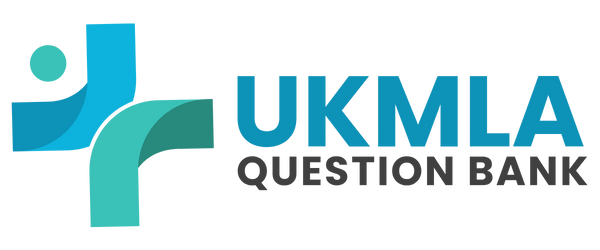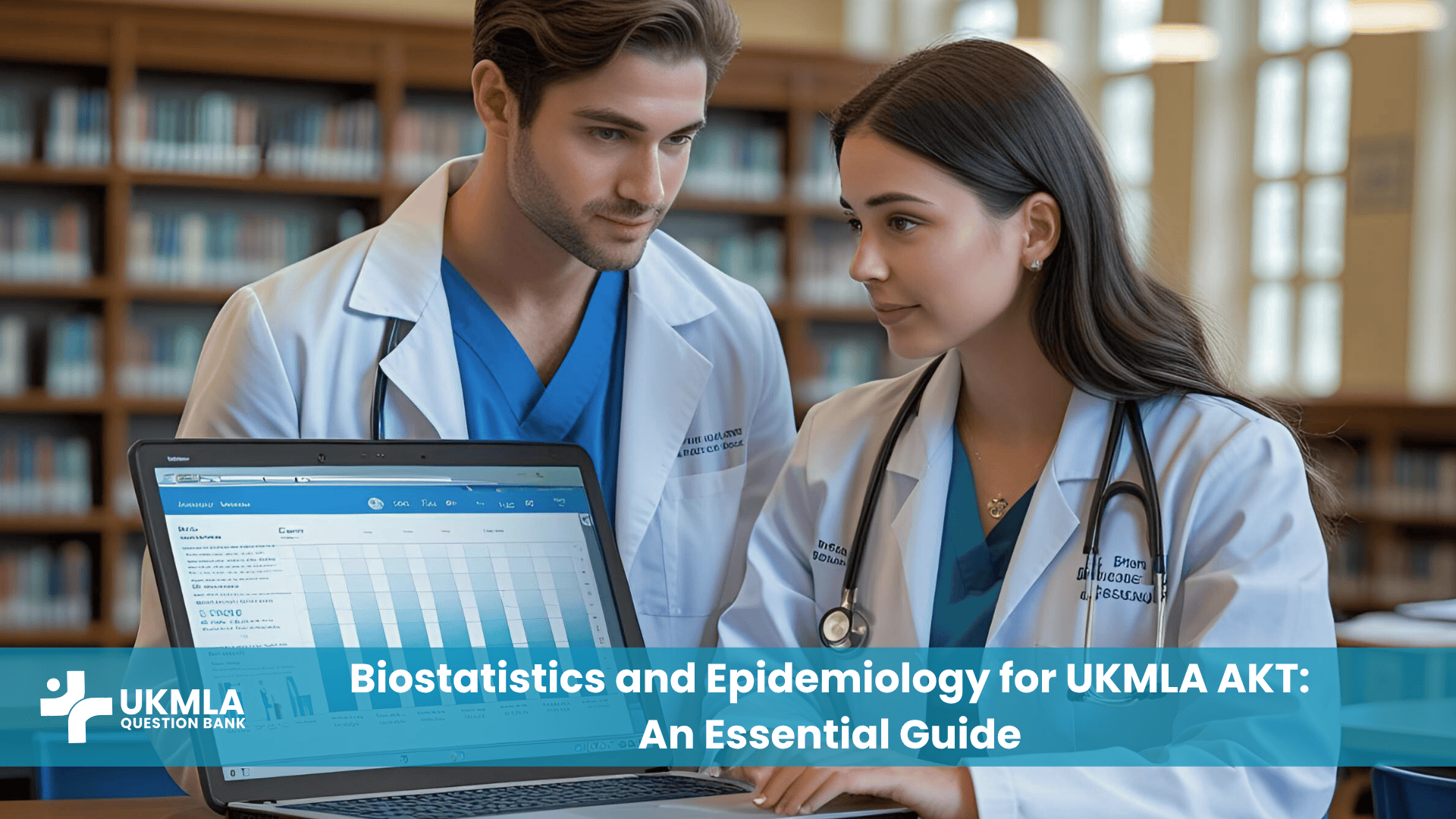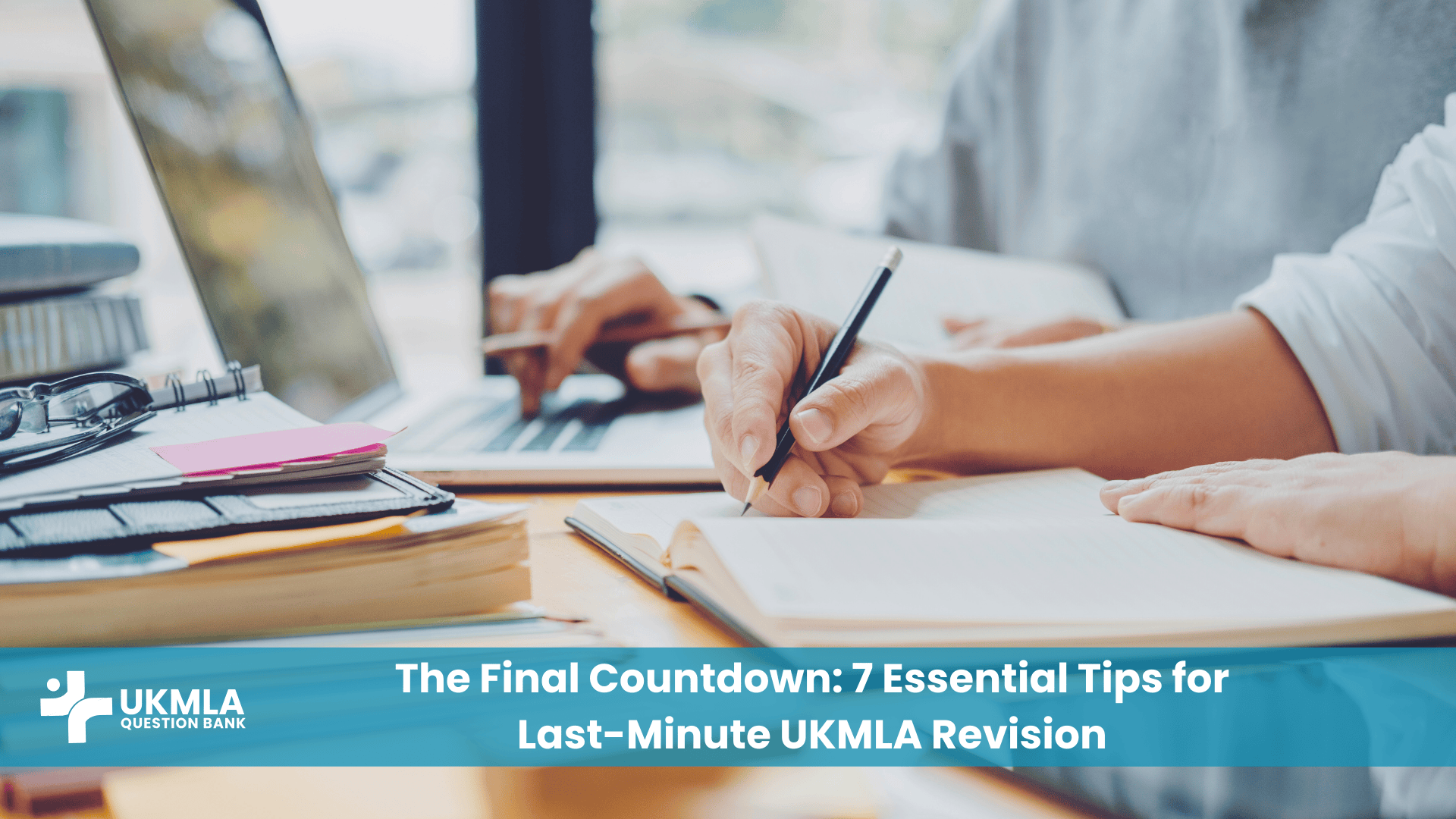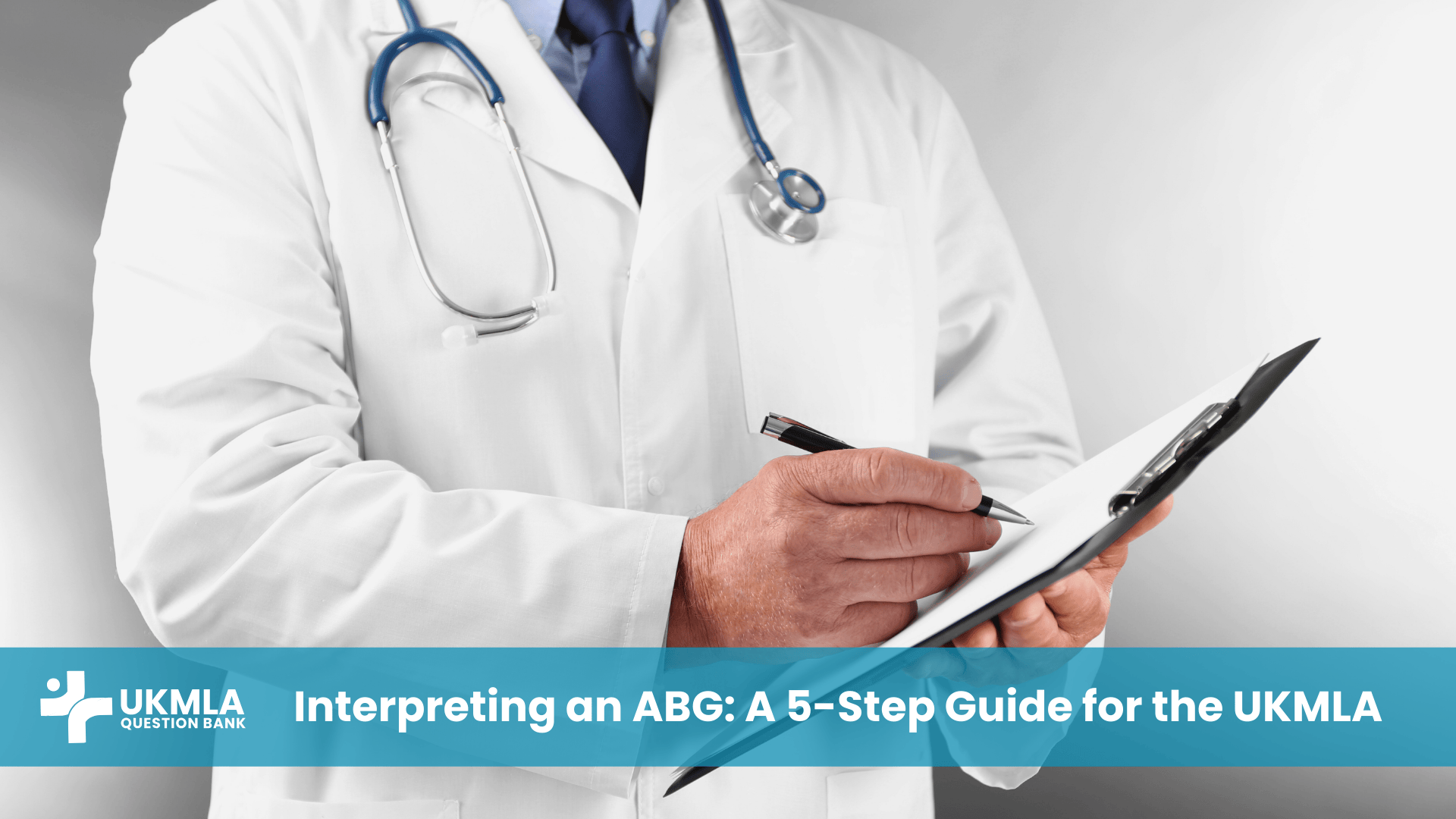Introduction
For any candidate preparing for the UKMLA Applied Knowledge Test (AKT), a high-quality question bank is an indispensable tool. However, a common misconception we see is that the key to success lies in completing the highest volume of questions possible. Students often fall into the trap of churning through thousands of Single Best Answer (SBA) questions, feeling a sense of accomplishment with each completed test, only to find their scores plateau and their knowledge gaps remain. The truth is, a UKMLA question bank is not a textbook to be passively read; it is a powerful diagnostic and training tool whose true value is only unlocked through a strategic, analytical approach.
This guide will reveal the best way to use UKMLA question banks for maximum benefit. We will move beyond the simple advice of “do more questions” and provide you with a sophisticated framework for active learning. We’ll explore the critical difference between learning modes, detail a systematic method for analyzing every question you answer, and show you how to integrate this powerful resource into a holistic study plan. By adopting these strategies, you will transform your question bank from a simple assessment tool into your single most effective engine for learning and score improvement.
Key Takeaways
Before we dive into the specific techniques, here are the core principles for using UKMLA question banks effectively:
- Analysis Over Volume: The learning happens after you answer the question. Spending 10 minutes analyzing a single question is more valuable than answering 5 new ones mindlessly.
- Embrace Both Timed and Tutor Modes: Use tutor mode for deep learning and understanding concepts, and use timed mode to build exam stamina and speed. A balanced approach is crucial.
- Create an Error Log: Actively track the questions you get wrong and, more importantly, why you got them wrong. This will reveal patterns in your knowledge gaps and reasoning errors.
- Use Performance Analytics: Modern UKMLA question banks provide detailed analytics. Use this data to identify your weakest subject areas and target them with focused revision.
- Practice Active Recall: Don’t just recognize the right answer. Before looking at the options, try to formulate the answer in your own mind based on the clinical vignette.
- Integrate, Don’t Isolate: Use your question bank performance to guide your reading. If you’re weak on cardiology, the Qbank will tell you. Use that information to direct your textbook study.
- Simulate the Real Exam: As your exam date approaches, shift your focus to completing full, timed mock exams to replicate the real experience and pressure.
Why UKMLA Question Banks are Your Most Powerful Study Tool
Understanding why question banks are so effective helps you use them correctly. They are not just for practice; they are tools built on proven principles of learning science.
Beyond Memorization: Simulating the UKMLA AKT Format
The UKMLA AKT is not a test of rote memorization. It assesses your ability to apply knowledge to complex clinical scenarios and make sound judgments. A well-designed UKMLA question bank does exactly the same thing. Each SBA is a mini-simulation of a clinical encounter. By practicing with thousands of these scenarios, you train your brain to:
- Quickly identify key information in a vignette.
- Formulate a relevant differential diagnosis.
- Recognize the patterns of common (and uncommon) diseases.
- Navigate the nuance of choosing the “single best” answer from several plausible options.
This is a skill that cannot be developed by reading textbooks alone. You are practicing the very cognitive process that the real exam is designed to test. The goal is to be able to apply knowledge effectively, a key theme we explore in our guide, “Conquer the UKMLA: Your Guide to Effective Practice Questions“.
Active Recall and Spaced Repetition in Practice
Passive learning, like reading a chapter or watching a lecture, is notoriously inefficient for long-term retention. UKMLA question banks force you into a state of active recall. Every question requires you to actively retrieve information from your memory, which strengthens that memory trace far more effectively than passive review. This concept is a cornerstone of modern learning science.
Furthermore, most high-quality question banks allow you to re-do questions you’ve previously gotten wrong. By revisiting these difficult concepts at increasing intervals, you are naturally engaging in spaced repetition, another evidence-based technique for moving information from your short-term to your long-term memory. The evidence for these techniques is robust, as detailed by many cognitive science resources.
Identifying Your “Unknown Unknowns”
One of the greatest challenges in studying is not knowing what you don’t know. You might feel confident about a topic after reading a chapter, but a block of challenging SBA questions can quickly reveal hidden weaknesses or misconceptions. A UKMLA question bank is the ultimate diagnostic tool. It shines a harsh but necessary light on your “unknown unknowns,” allowing you to turn them into known weaknesses that you can then systematically address. This is arguably the most valuable benefit of using a question bank properly.
The Two Modes of Practice: Tutor vs. Timed
Most modern UKMLA question banks offer two primary modes of practice. Knowing when and how to use each is crucial for a balanced preparation strategy.
Tutor Mode: For Deep Learning and Understanding
In tutor mode, you answer a question and immediately see the correct answer and the detailed explanation. This mode is perfect for the early and middle stages of your revision.
- Use it when learning a new topic: After reading about cardiology, do a block of cardiology questions in tutor mode. This immediately connects the theoretical knowledge to its practical application.
- Focus on the “Why”: Take your time. Read every word of the explanation, even for questions you get right. Understand why the correct answer is correct and, just as importantly, why every other option is incorrect. This builds deep conceptual understanding.
Timed Mode: For Building Speed and Stamina
In timed mode, you complete a block of questions under exam-like time constraints, and you only see the results and explanations at the very end. This mode is for assessment and building exam fitness.
- Use it to simulate the real exam: It helps you get used to the pressure of the clock and develop an internal sense of pacing.
- Identify your speed: Are you consistently running out of time? Timed mode will diagnose this problem, allowing you to work on your efficiency.
- Shift towards this mode closer to the exam: In the final 4-6 weeks before your AKT, the majority of your Qbank practice should be in timed mode to mimic the real exam experience.
A Hybrid Approach: How to Balance Both Modes
A successful strategy involves a dynamic balance between these two modes.
| Revision Phase | Recommended Mode Balance | Rationale |
|---|---|---|
| Early (Learning Phase) | 80% Tutor Mode / 20% Timed Mode | Focus is on building foundational knowledge and deep understanding of concepts. |
| Middle (Consolidation Phase) | 50% Tutor Mode / 50% Timed Mode | Balance deep learning with starting to build speed and exam stamina. |
| Late (Exam Prep Phase) | 20% Tutor Mode / 80% Timed Mode | Focus shifts to exam simulation, pacing, and performance under pressure. |
The Art of Analysis: The Most Important Step
Highlight: The time you spend analyzing the questions you have completed is the highest-yield activity in your entire UKMLA preparation. This is where the real learning occurs.
The 4-Step Review Method for Every Question
For every single question, especially those you get wrong or were unsure about, you must perform a 4-step analysis:
- Analyze the Correct Answer: Read the explanation and understand precisely why this option is the single best answer. What specific piece of information in the stem made it superior to the others?
- Analyze Your Answer (if incorrect): Why did you choose your answer? Were you tempted by a distractor? Did you have a specific knowledge gap? Be honest with yourself.
- Analyze the Other Distractors: Go through every other option and understand exactly why it was incorrect. Was it irrelevant? Was it a less appropriate management step? Was it factually wrong?
- Synthesize the Core Learning Point: Summarize the key takeaway from the question in a single sentence. This is what you should add to your notes or error log.
“The foolish student is happy they got a question right. The wise student wants to know why they got it right, and why every other option was wrong. That is the mindset that leads to a top score.” – (Attributed to a senior medical educator).
Creating an Error Log to Track Your Mistakes
An error log is a simple but powerful tool. It can be a notebook or a spreadsheet. For every question you get wrong, log:
- The topic/subject.
- The core learning point (from your 4-step analysis).
- The reason for your error (e.g., “Knowledge gap,” “Misread question,” “Rushed,” “Tricked by distractor”).
Over time, your error log will reveal powerful patterns. You might discover you consistently make mistakes in endocrinology, or that you often get tricked by questions with long vignettes. This data-driven approach allows you to target your weaknesses with precision. For more on this, our guide on “UKMLA Mistakes to Avoid…” is an invaluable companion.
Using Performance Analytics to Guide Your Revision
All top-tier UKMLA question banks come with a performance dashboard. This is your personal data analytics tool. Use it to:
- Identify Weak Subjects: The dashboard will clearly show you if you are scoring 50% in respiratory but 80% in cardiology. This tells you exactly where to focus your next study session.
- Compare Yourself to Your Peers: Many Qbanks show you how you performed on a question compared to other users. If you get a question wrong that 85% of other people got right, it indicates a significant personal knowledge gap that you must address.
- Track Your Progress Over Time: Seeing your percentage correct slowly rise over weeks and months is a powerful motivator and a clear sign that your study strategy is working.
| Analytical Tool | What It Tells You | How to Use It |
|---|---|---|
| 4-Step Question Review | The deep clinical reasoning behind a single question. | Perform for every question, especially incorrect ones, to build conceptual understanding. |
| Error Log | Your personal patterns of error (e.g., knowledge gaps vs. technique errors). | Review your log weekly to identify recurring weaknesses and guide your study focus. |
| Qbank Performance Analytics | Your objective performance by subject area compared to your peers. | Use the data to decide which subjects to study next. Focus on your lowest-scoring areas. |
Integrating Your Question Bank into a Wider Study Plan
A UKMLA question bank is most powerful when it is not used in isolation. It should be the engine at the center of a dynamic and responsive study plan.
Using Qbank Performance to Guide Your Reading
Your Qbank analytics should dictate your study schedule. This “test-enhanced learning” approach is far more efficient than passively reading every chapter of a textbook.
- The Process: Do a block of random, timed questions. Check your performance analytics. See that you scored 45% on gastroenterology. Your task for the next two days is now clear: go back to your textbooks, videos, or notes and do a deep dive into gastroenterology.
- The Benefit: This ensures you are always focusing your precious study time on your actual, diagnosed weaknesses, not on subjects you are already good at.
Linking Qbank Scenarios to Clinical Experience
The vignettes in a UKMLA question bank provide perfect templates for learning from real life. When you are on the wards, try to connect the patients you see with the scenarios you’ve practiced.
- If you see a patient with COPD, think: “What SBA question would be written about this patient? What would the distractors be? What is the single best next step in their management?”
- This process, which we explore in “Integrating Clinical Experience with UKMLA Book Study,” helps bridge the gap between theory and practice, making your learning much more robust.
Transitioning to Full Mock Exams
As your exam date nears, your focus should shift from learning new material to consolidating knowledge and perfecting exam technique. This is where full mock exams become essential.
Highlight: A full mock exam, completed under strict timed conditions, is the ultimate dress rehearsal. It tests your knowledge, timing, and mental stamina all at once.
| Study Period | Primary Goal | Recommended Qbank Use |
|---|---|---|
| Months 4-6 Before Exam | Building foundational knowledge | Subject-specific blocks in Tutor Mode to learn concepts deeply. |
| Months 2-3 Before Exam | Identifying and fixing weaknesses | Random timed blocks, using analytics to guide targeted revision. |
| Final 4-6 Weeks | Perfecting exam technique and timing | Multiple full-length mock exams under strict, timed conditions. |
Supercharge Your UKMLA Prep with UKMLAQuestionBank.com
Choosing the right tool is the first step to implementing a successful strategy. The principles of effective practice are built into the very design of UKMLAQuestionBank.com, created to be the ultimate resource for your preparation.
Our extensive UKMLA question bank is filled with thousands of high-yield, clinically-oriented SBAs that are meticulously crafted to reflect the style, difficulty, and content map of the real UKMLA AKT. We don’t just provide questions; we provide a complete learning ecosystem. Every question features a detailed, expert-written explanation that breaks down the clinical reasoning and explains why each distractor is incorrect.
Frequently Asked Questions (FAQ) Your UKMLA Question Bank Questions Answered
There is no magic number. Quality over quantity is key. A student who thoughtfully completes and analyzes 2,000 questions will outperform a student who passively churns through 5,000. Focus on your percentage correct and your understanding, not just the raw number.
Both have their place. When learning a new topic, do questions by subject (e.g., cardiology) to consolidate your knowledge. Closer to the exam, switch to random, timed blocks to simulate the mixed nature of the real AKT.
Don’t panic! A question bank is a learning tool, not a final judgment. Low scores are diagnostic—they are telling you where you need to focus. Use the information to guide your study, analyze your errors, and your scores will improve over time.
This can be a good strategy, especially if you have a long preparation period. Completing the question bank once, and then resetting it to focus on your incorrect answers from the first pass, is a powerful way to engage in spaced repetition.
It is far better to use one high-quality UKMLA question bank thoroughly than to skim the surface of several. Mastering one resource, including all its explanations and analytics, will yield much better results.
While the CPSA is a practical exam, the clinical reasoning required is the same. As you do SBAs, think about how you would take the history or perform the examination for that patient. The Qbank builds the mental framework that you will need to apply in your CPSA stations.
This varies, but many students aim to be consistently scoring in the 70-80% range in random, timed blocks in the weeks leading up to the exam. The most important thing is the upward trend of your score over time.
Make it a weekly ritual. Spend an hour every Sunday, for example, reviewing the mistakes you made that week. This will help consolidate the learning and keep your weaknesses at the forefront of your mind for the next week’s study.
Yes, absolutely. The explanations are where the majority of the learning happens. The value of a premium UKMLA question bank is not in the questions, but in the quality and detail of its explanations. Skipping them is like throwing away the most valuable part of the resource.
This is a critical point. You must treat this as an incorrect answer. During your review, if you discover you guessed or used flawed logic to arrive at the right answer, add it to your error log. You need to fix the underlying reasoning gap.
Conclusion: Transforming Your Question Bank into Your Greatest Asset
A UKMLA question bank is the most powerful weapon in your study arsenal, but only if you wield it with strategy and intelligence. Shift your mindset from chasing a high volume of questions to pursuing a deep analysis of each one. Embrace the diagnostic power of the analytics, be honest about your weaknesses, and use that information to create a targeted and efficient study plan.
By combining deep learning in tutor mode with performance training in timed mode, and by making meticulous analysis the cornerstone of your process, you will unlock the full potential of your question bank. This strategic approach will not only lead to a higher score on the UKMLA AKT but will also build the robust clinical reasoning skills that are the hallmark of a great doctor.
Ready to unlock the full power of a premium UKMLA question bank? See the difference that a strategic approach can make. Explore the comprehensive resources at UKMLAQuestionBank.com and start training smarter, not just harder!
Maximize Your Score: Use Your Qbank the Right Way!
Don’t just do questions—learn from them. Access our industry-leading question bank, powerful analytics, and expert strategies to transform your UKMLA preparation.
[Explore the UKMLAQuestionBank.com Advantage Now!]




